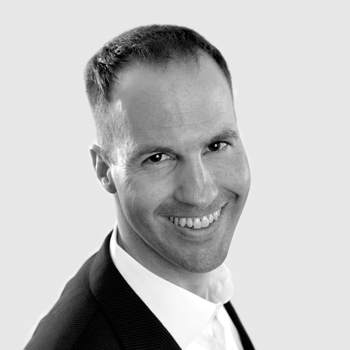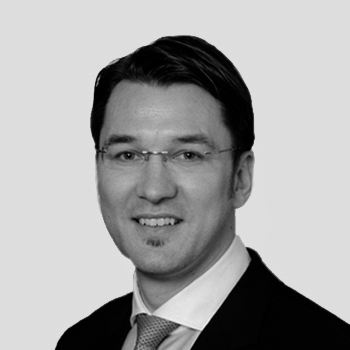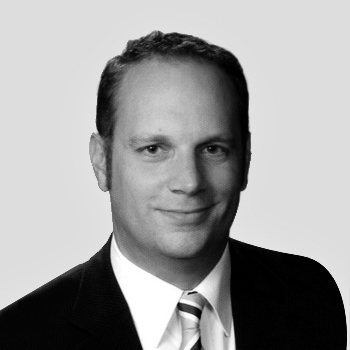Germany
Our information in the English language concerning establishment, management and dissolution of trusts as well as the assertion or defence against beneficiary rights in Germany is currently still being developed. We kindly ask for your understanding. Therefore, please do not hesitate to contact us directly with your queries and concerns. For over ten years now, we are specialised in the establishment, management and dissolution of trusts. With us you are always competently advised and well represented. We look forward to receiving your message or call!
Austria
Our information in the English language concerning establishment, management and dissolution of trusts as well as the assertion or defence against beneficiary rights in Austria is currently still being developed. We kindly ask for your understanding. Therefore, please do not hesitate to contact us directly with your queries and concerns. For over ten years now, we are specialised in the establishment, management and dissolution of trusts. With us you are always competently advised and well represented. We look forward to receiving your message or call!
Liechtenstein
Even if a trust fundamentally takes the form of a company structure, it is often the most sensible way to secure and implement long-term assets, value and visions. As far back as the 1930s, the Principality of Liechtenstein had made it possible to transfer assets into trusts in order to protect them.
The Viehbacher law firm will comprehensively advise you on foundation law. Whether you’re looking at the set up of trusts, how to manage trusts or even considering the dissolution of one, our experts will implement your instructions and interests in a targeted manner.
The set up of trusts in Liechtenstein is one of the special areas of expertise of the Viehbacher law firm. To read more interesting information on the "Liechtenstein Trust 2.0”, please click here.
- Set up of trusts
- Types of trusts
- Statutes of the trust
- The nature of the trust
- Manage trusts
- Persons benefiting from a family trust
- Dissolution of trusts
- Tax aspects
1. Set up of trusts
The central element of a trust is the declaration of establishment (statute). This means the written declaration of the founder detailing the intention to set up a trust, Article 552 § 14 Law on Persons and Companies (PGR). The signature of the founder or founders also needs to be authenticated, in addition to the requirement of the written form.
However, a trust can also be established by death. Under Article 552 § 15 para. 1 PGR, a trust can be established by a will or testamentary contract. However, the respective formal requirements must be observed.
There exists a minimum capital that must be submitted for the establishment of the trust. In accordance with Article 552 § 13 para. 1 PGR, this amounts to CHF 30,000.00. The minimum capital can also be introduced in euros or US dollars, the respective amounts being EUR 30,000.00 or USD 30,000.00.
2. Types of trusts
Article 552 § 1 PGR determines that each trust must have a purpose. The purpose of the trust is freely chosen by the founder and clearly set out. Depending on that purpose, it might be a charitable foundation or private-benefit trust. A charitable foundation occurs, according to Article 552, § 2, para. 2 PGR, if the activities of the trust are directed mainly towards non-profit purposes – for example, the promotion of cultural or charitable efforts by the general public.
By way of contrast, a private-benefit trust is one in which the activity is predominantly oriented towards private or ‘self-serving’ purposes, Article 552, § 2, para. 3 PGR. Family trusts are the most commonly seen form of private-benefit trust. However, they have a special characteristic: if the trust is established with the intention of supporting family members in need (and thus relieving the welfare state) then, despite the secondary effect of it being for public utility, it is not a charitable foundation, but a private-benefit trust.
3. Statutes of the trust
The set up of trusts is carried out by formulating the declaration of establishment, or statute; see § 552 § 14 para. 1 PGR. Essential elements of the statute are laid down by the act in Article 552 § 16 PGR, but the actual form is the responsibility of the founder. In addition, Article 552 § 16 para. 2 PGR provides founders with the option of putting into place further regulations in the statute. For example, components of the declaration of establishment, which do not necessarily have to be regulated in the trust deed, can be regulated in a supplementary trust deed (bylaw), Article 552 § 17 PGR. In addition, the founder or executive body of the trust may adopt internal rules, known as regulations, § 552 § 18 PGR. These regulations serve to firm up the statute or bylaws.
Thorough consultation and a careful structure are vital for the success of the trust, since the successful implementation of the trust's purpose is dependent on good, well-designed statutes and bylaws. We will undertake the drafting of statutes and bylaws in close cooperation with you. In addition to drawing everything up, we can also verify drafts of the statutes and bylaws to ensure careful implementation of your ideas as the founder.
4. The nature of the trust
A trust, in accordance with Article 552 § 1 et seq. PGR, is actually a type of company structure and forms what is known as a legal person or entity. This can have various effects. A trust is an independent asset; it is a distinct legal entity and is equipped with its own legal personality. This autonomous asset is totally separate from the personal assets of the founder. This means that the founder loses his decisive influence over the trust and its activities. Only if the founder has provided for it in the Articles of Association is it possible for them to revoke the trust and/or amend the articles of association, pursuant to Article 552 § 30 PGR. It should be noted that these rights, even if reserved, cannot be ceded or inherited.
5. Manage trusts
When considering how to manage trusts, there are several things to consider. Inherent to the form of the trust is the need for it to set up corporate bodies in order for it to be able to act. Article 552 § 24 PGR determines that the trust is managed and handled by a Board of Directors. Article 552 § 24 para. 2 PGR goes further, stating that the Board of Directors must consist of at least two people.
If the trust engages in business on commercial lines, an auditor must be appointed in accordance with Article 552 § 27 PGR. As a result of the trust's own legal personality, it needs a representative pursuant to Articles 239 et. seq. PGR.
Apart from this, the founder can set out in the statutes that a supervisory body must be established, pursuant to Article 552 § 11 PGR, and that further corporate bodies within the meaning of Article 552 § 28 PGR are to be established.
6. Persons benefiting from a family trust
Family or private-benefit trusts are set up in the pursuit of private or self-serving purposes. Even when the purpose of the trust is the preservation of assets and providing family support, the trust has special features. Arising from this situation is the fact that the assets of the trust are completely withdrawn from the founder, and that access rights to the assets do not exist for the founder and/or beneficiaries of the founder. Rather, in accordance with Article 552 § 16 para.1 no. 4 PGR, the beneficiary or group of beneficiaries are named in the articles. Individualisation of the beneficiaries is possible in the bylaws, as long as the possibility of referral has been included.
Article 552 § 5 PGR sets out the legal definition of beneficiaries. According to this, a beneficiary is a person who in any way can benefit from an economic advantage as a result of the trust. The beneficiaries of a trust do not have to be of equal status. Rather, the PGR in Article 552 § 6 differentiates between four categories of beneficiaries.
All of the above makes it clear that the set up of trusts, as well as the right to make a claim or defend complex situations is a complex matter. To implement your wishes in the establishment of the trust, technical expertise is just as necessary as comprehensive experience in foundation law. Both of these factors are also essential if the enforcement or defence of the rights of those persons benefiting is required. The Viehbacher law firm has been active for several years in the Principality of Liechtenstein, and is therefore familiar with the institution of trusts.
7. Dissolution of trusts
Even though a trust represents a long-term instrument for asset management and the protection of assets, it may become necessary to dissolve or end the trust. This requires a reason for the dissolution, the carrying out of the liquidation procedure and, finally, the removal from the public register.
In principle, the general provisions of Article 130 PGR are to be applied here, and any foundation law related amendments to Article 552 §§ 39 et. seq. PGR should be observed. So, in Article 552 § 39 PGR, the various reasons for the dissolution – for example, the trust having achieved its purpose – can be found, provided that the trust was set up for a very specific purpose. Our experts will handle such situations respectfully and with the necessary tact and they will advise the founders and/or trust bodies on all issues arising from the dissolution of a trust.
8. Tax aspects
Liechtenstein trusts are subject to an annual tax on profits. In addition, tax-related issues can also be clarified on behalf of the beneficiaries. This is all the more relevant if the beneficiaries are subject to unlimited tax liability within the EEA or Switzerland. Our lawyers have been working closely with our tax consultants for many years to develop the best solutions for you and your trust.
Contact
Our Liechtenstein experts are looking forward to hearing from you.
Switzerland
Our information in the English language concerning establishment, management and dissolution of trusts as well as the assertion or defence against beneficiary rights in Switzerland is currently still being developed. We kindly ask for your understanding. Therefore, please do not hesitate to contact us directly with your queries and concerns. For over ten years now, we are specialised in the establishment, management and dissolution of trusts. With us you are always competently advised and well represented. We look forward to receiving your message or call!







